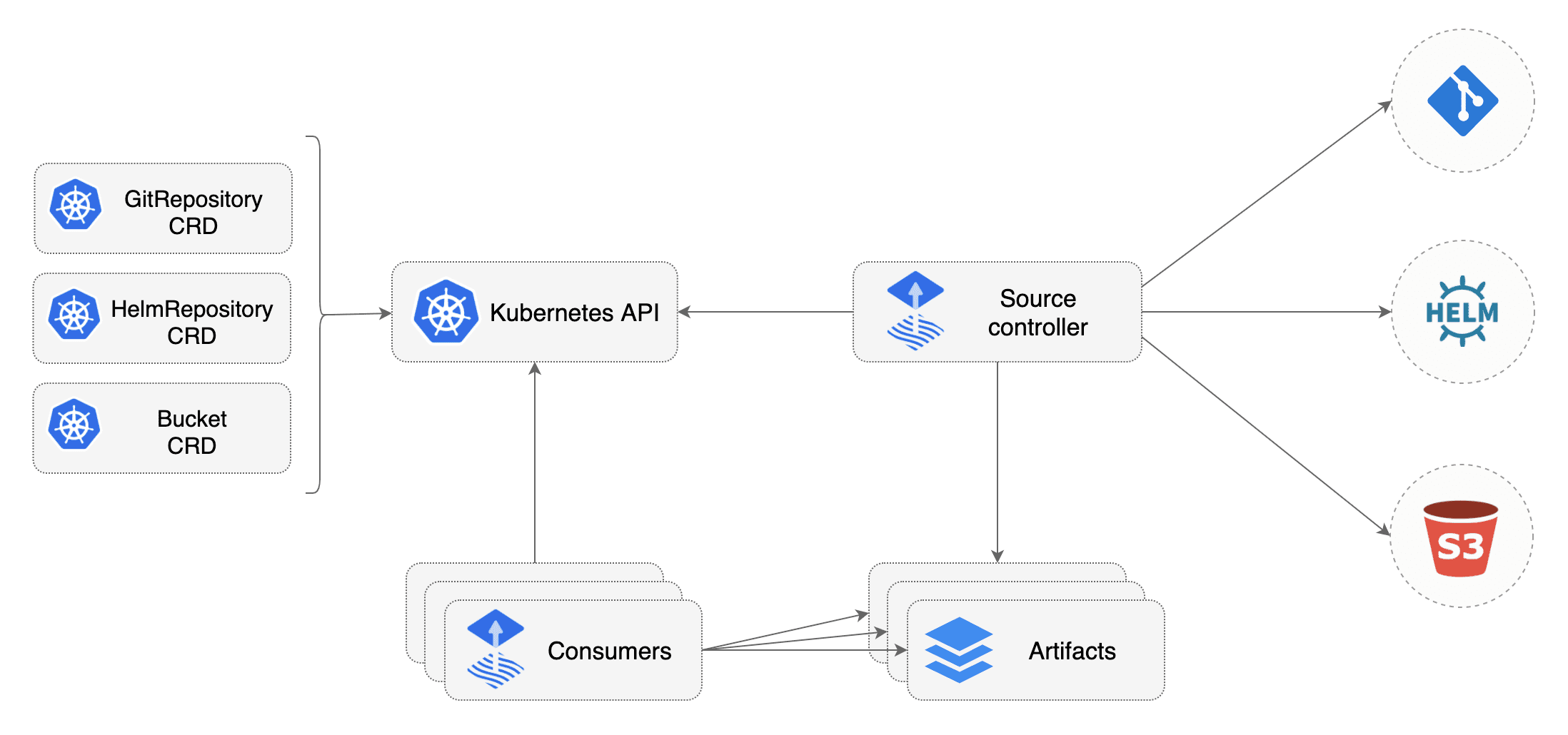The problem with `GetInterval()` was that the returned type was of `metav1.Duration`, while almost anywhere it was used, a type of `time.Duration` was requested. The result of this was that we had to call `GetInterval().Duration` all the time, which would become a bit cumbersome after awhile. To prevent this, we introduce a new `GetRequeueAfter() time.Duration` method, which both results the right type, and bears a name that is easier to remember where the value is used most; while setting the `Result.RequeueAfter` during reconcile operations. The introduced of this method deprecates `GetInterval()`, which should be removed in a future MINOR release. Signed-off-by: Hidde Beydals <hello@hidde.co> |
||
|---|---|---|
| .github | ||
| api | ||
| config | ||
| controllers | ||
| docs | ||
| hack | ||
| internal | ||
| pkg | ||
| .gitignore | ||
| CHANGELOG.md | ||
| CODE_OF_CONDUCT.md | ||
| CONTRIBUTING.md | ||
| DCO | ||
| Dockerfile | ||
| LICENSE | ||
| MAINTAINERS | ||
| Makefile | ||
| PROJECT | ||
| README.md | ||
| go.mod | ||
| go.sum | ||
| main.go | ||
README.md
Source controller
The source-controller is a Kubernetes operator, specialised in artifacts acquisition from external sources such as Git, Helm repositories and S3 buckets. The source-controller implements the source.toolkit.fluxcd.io API and is a core component of the GitOps toolkit.
Features:
- authenticates to sources (SSH, user/password, API token)
- validates source authenticity (PGP)
- detects source changes based on update policies (semver)
- fetches resources on-demand and on-a-schedule
- packages the fetched resources into a well-known format (tar.gz, yaml)
- makes the artifacts addressable by their source identifier (sha, version, ts)
- makes the artifacts available in-cluster to interested 3rd parties
- notifies interested 3rd parties of source changes and availability (status conditions, events, hooks)
- reacts to Git push and Helm chart upload events (via notification-controller)


